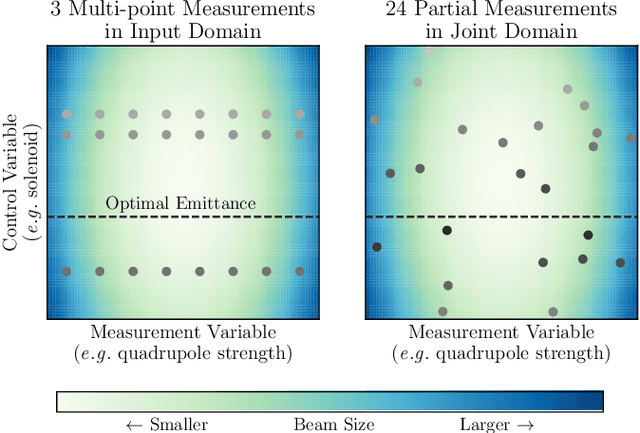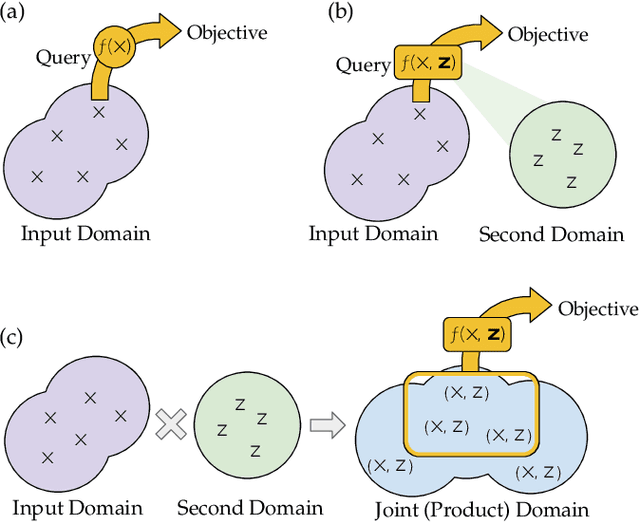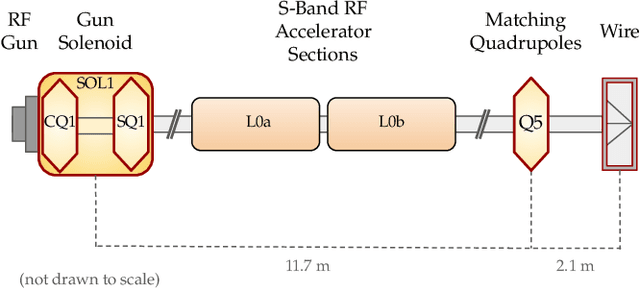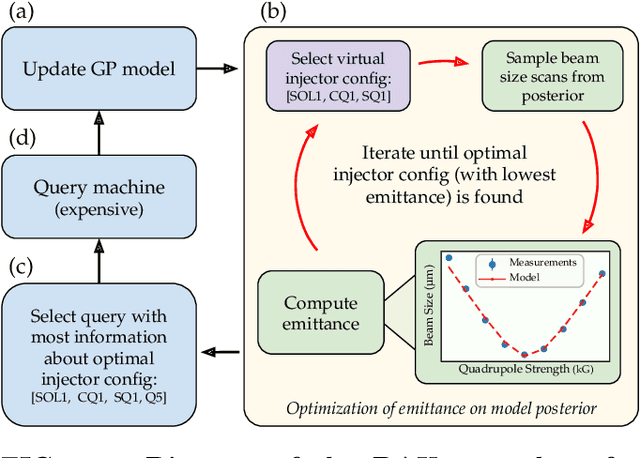Bayesian Algorithm Execution for Tuning Particle Accelerator Emittance with Partial Measurements
Paper and Code
Sep 10, 2022



Traditional black-box optimization methods are inefficient when dealing with multi-point measurement, i.e. when each query in the control domain requires a set of measurements in a secondary domain to calculate the objective. In particle accelerators, emittance tuning from quadrupole scans is an example of optimization with multi-point measurements. Although the emittance is a critical parameter for the performance of high-brightness machines, including X-ray lasers and linear colliders, comprehensive optimization is often limited by the time required for tuning. Here, we extend the recently-proposed Bayesian Algorithm Execution (BAX) to the task of optimization with multi-point measurements. BAX achieves sample-efficiency by selecting and modeling individual points in the joint control-measurement domain. We apply BAX to emittance minimization at the Linac Coherent Light Source (LCLS) and the Facility for Advanced Accelerator Experimental Tests II (FACET-II) particle accelerators. In an LCLS simulation environment, we show that BAX delivers a 20x increase in efficiency while also being more robust to noise compared to traditional optimization methods. Additionally, we ran BAX live at both LCLS and FACET-II, matching the hand-tuned emittance at FACET-II and achieving an optimal emittance that was 24% lower than that obtained by hand-tuning at LCLS. We anticipate that our approach can readily be adapted to other types of optimization problems involving multi-point measurements commonly found in scientific instruments.
 Add to Chrome
Add to Chrome Add to Firefox
Add to Firefox Add to Edge
Add to Edge